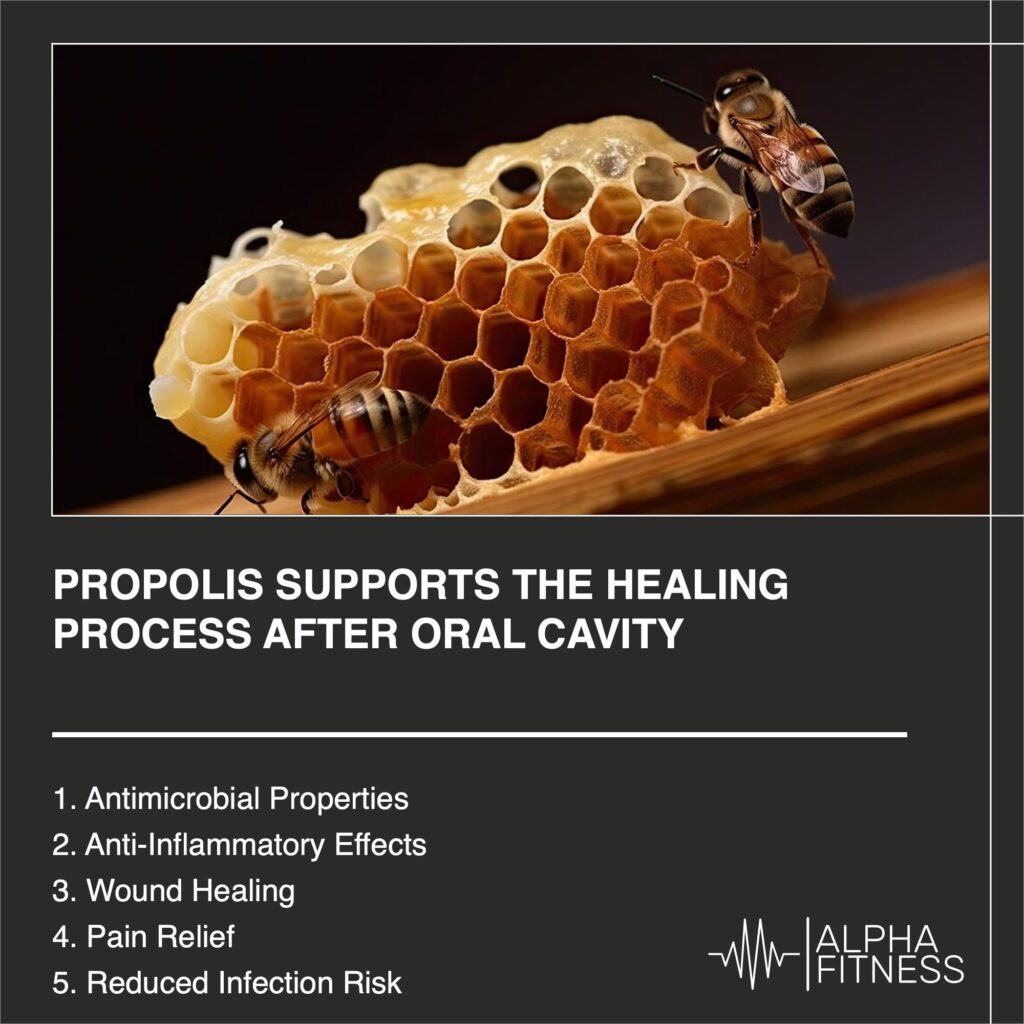
Below is a list of useful links:
- Get a healthy gum to regular use of mouthwash
- Charcoal Toothpaste: Is It a Safe Way to Whiten Your Teeth?
- Chewing apples can fight cavities
- Potato chips, being starchy, can dry out your mouth
- Milk helps strengthen teeth
Propolis is a natural resinous substance that bees collect from tree buds, sap flows, or other botanical sources. It has been used for centuries for its potential health benefits, including wound healing and anti-inflammatory properties. While propolis has been studied and used for various medical and oral health purposes, its effectiveness in supporting the healing process after oral cavity surgery may have some merit. Here are some reasons why propolis might be considered beneficial:
Antimicrobial Properties: Propolis contains various compounds with antimicrobial properties, such as flavonoids and phenolic acids. These substances can help prevent infection and reduce the risk of postsurgical complications.
Anti-Inflammatory Effects: Propolis has been shown to have anti-inflammatory properties, which can be beneficial for reducing pain and swelling after oral surgery. Inflammation is a common response to surgery, and minimizing it can aid in the healing process.
Wound Healing: Propolis has been investigated for its potential to stimulate the growth of new tissue and promote wound healing. This could be especially helpful in the early stages of recovery after oral surgery.
Pain Relief: The anti-inflammatory and analgesic (pain-relieving) properties of propolis may provide relief from postsurgical pain and discomfort.
Reduced Infection Risk: The antimicrobial properties of propolis may help reduce the risk of infection in the surgical site.
Oral Health Benefits: Propolis is used in various oral health products like mouthwashes and toothpaste due to its potential benefits in combating oral infections and promoting overall oral health.
Despite these potential benefits, it’s important to exercise caution when using propolis or any natural remedy after oral cavity surgery. Here are some considerations:
Consult with Your Surgeon: Before using propolis or any natural supplement, it’s crucial to consult with your oral surgeon or healthcare provider. They can provide guidance on its safety and appropriateness for your specific situation.
Allergies: Some individuals may be allergic to propolis, so it’s essential to perform a patch test or seek professional guidance before using it to avoid allergic reactions.
Dosage and Application: The appropriate dosage and application method may vary depending on the product and the specific surgical procedure. Your healthcare provider can provide guidance on proper use.
Quality and Purity: Ensure that you use high-quality propolis products to minimize the risk of contaminants or impurities.
Adhere to Postoperative Instructions: Propolis should be used as a complementary treatment, not as a replacement for the postoperative care instructions provided by your surgeon.
In summary, propolis may have properties that support the healing process after oral cavity surgery, but its use should be discussed with your healthcare provider to ensure it is safe, appropriate, and effectively integrated into your postsurgical care.



